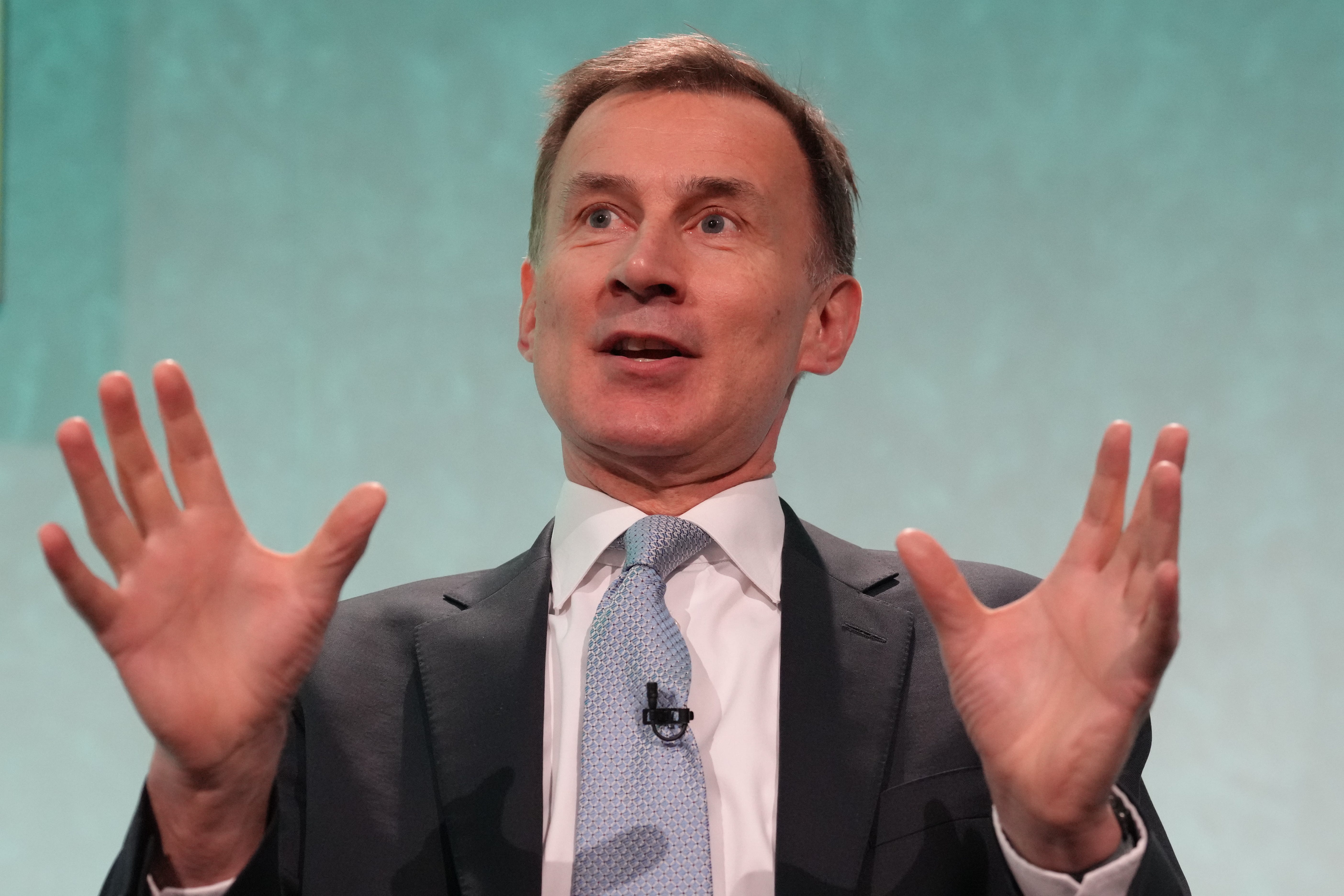Governments need ‘light touch’ regulation on AI, cautions Jeremy Hunt
The Chancellor also said the West should hold talks with China to ensure the technology is not used for an arms race between superpowers.

Jeremy Hunt has said governments need to be “light touch” with their regulation of AI, as he also called for talks with China to ensure the technology is not used for an arms race between superpowers.
Speaking at the World Economic Forum event at Davos, the Chancellor of the Exchequer said there was a need for some “guard-rails” around generative AI.
Mr Hunt appeared on a panel about the potential use and threats of AI alongside business leaders including Sam Altman, the chief executive officer of OpenAI, the firm behind ChatGPT.
We have choices now and the choice we need to make is how to harness it (generative AI) so it is a force for good
When asked about regulation of rapidly-developing technology, he said: “I think we need to be light touch because this is such an emerging stage.
“You can kill the golden goose before it has time to grow.
“As a politician, I look at the problems that we face, such as the next pandemic, and we don’t want to have to wait a year for the vaccine. If AI can shrink that to a month, that is a massive step forward.
“But we have to keep our eyes open – we also need guard-rails to make sure a rogue actor isn’t going to be able to use gen AI to build nuclear weapons.”
Last year, the UK Government launched a consultation about implementing a “pro-innovation approach” to AI regulation.
The Chancellor also stressed that global AI standards should “reflect liberal democratic values” amid concerns over how it could be used to heighten geopolitical tensions.
Mr Hunt said: “We have choices now and the choice we need to make is how to harness it so it is a force for good.
“I actually think that means talking to countries like China because one of the ways it would be a force for bad is if it just became a tool in a new geostrategic superpower race with much of the energy put into weapons, rather than things which would actually transform our daily lives.
“Those are choices we make and one of the ways we avoid that happening is by having a dialogue with countries like China over common ground.”
Mr Hunt’s trip to the exclusive Swiss ski resort to join the annual gathering of international movers and shakers is the first time a UK chancellor has attended the forum in five years.
The Chancellor, who is also set to appear at a second panel, said earlier that he would tell political and business leaders at the event that the UK is “on the up and open for business”.
Foreign Secretary Lord Cameron has also been at the forum representing the UK Government.
Jonathan Reynolds, Labour’s shadow business secretary, is there with shadow chancellor Rachel Reeves.
Ms Reeves told a panel event organised by the forum on Wednesday that Labour’s economic approach would differ from so-called “Bidenomics” because the party “just don’t have the luxury” to spend as heavily to expand the supply side of the economy.
The senior Opposition figure said Labour would rely more on planning reforms and non-fiscal levers to boost growth if it wins the next election.